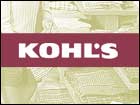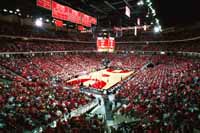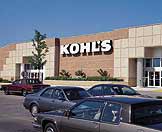
The University of Wisconsin was knocked out of the NCAA tournament last weekend, but the school plays host to Midwest Regional games this Friday and Sunday at the Kohl Center in Madison, Wisc.
While new coach Bo Ryan gets much of the credit for the Badgers success, some might give the nod to the school's sleek new 18,000-seat arena built largely with a single $25 million donation from Herb Kohl, co-founder of the Kohl's Corp. department store chain.
Kohl, a Milwaukee native and owner of the NBA's Milwaukee Bucks, is a 1956 graduate of the university.
"It is a fact that our family's business originated in, and prospered in, Wisconsin," Kohl said. "I wanted to do something that could be seen as something for the people of Wisconsin. It seemed like the right thing to do."
 |
|
| Sen. Herb Kohl (D-Wis.) donated $25m to build the Kohl Center at UW. (From: Herb Kohl) |
The Badgers have throttled up their performance each year since the "House that Herb built" opened five years ago. And many would not be surprised if fans took up the successful Kohl's Corp. (KSS: down $0.87 to $70.04, Research, Estimates) ad slogan, "That's more like it."
"Without him (Kohl), we may still be looking for a new basketball facility," said John Finkler, a UW athletic department spokesman. "That was just a donation I think you can call incredible. For somebody like him to give $25 million -- that just took the whole project way up from being a maybe, or a modest facility, to something we consider very first class now."
The building houses both the men's and women's basketball teams as well as the men's and women's hockey teams. Some features include a 2,200 square-foot locker area complete with study carrels and computers and a lounge area with sound and video systems. Food courts, retail outlets and restrooms line both floors.
Though Kohl, 67, and his family sold their interest in the home-grown retail chain 23 years ago, it netted him enough of a personal fortune to fuel his passion for sports and helped fund a successful campaign for the U.S. Senate in 1988.
In 1985, Kohl plunked down $18 million to buy the NBA's Milwaukee Bucks after the team threatened a move to Minneapolis. He attends several games a season.
 |
|
| The Kohl Center seats about 18,000. (Courtesy: UW Athletics) |
"Sports has been something I've been very interested in all my life. Basketball is my favorite sport," Kohl said.
One of four children born to poor immigrant parents, Kohl split his childhood sweeping up in the family grocery and playing stickball in the Milwaukee streets with his neighbor, Bud Selig, the current Major League Baseball commissioner. The two later roomed together at the University of Wisconsin.
Kohl and two brothers helped expand the family's single grocery into a multimillion-dollar chain of more than 100 grocery and department stores and pharmacies by 1972. Kohl served as the company's president from 1970 to 1978, when the Kohls decided to sell their entire stake in the business to British American Tobacco Industries. BAT, which also owned department store chains Saks Fifth Ave. (SKS: down $0.25 to $13.70, Research, Estimates) and now defunct Gimbels, had acquired an 80 percent stake in the privately-held Kohl's Corp. the previous year.
A private investor group led by Kohl's senior management bought the company in 1986 and took it public in 1992 with an offering of 11.1 million shares. Retired Chairman Bill Kellogg and CEO Larry Montgomery are credited with giving the stores their now familiar format of wide aisles and competitive prices.
Chances are, if you don't already live within minutes of one, you soon will.
Kohl's plans to open 70 new stores this year, including its first major entry into Boston, with 13 stores, and Nashville, Tenn., with four stores. Others are planned for Dallas, upstate New York, and New Jersey. As of Feb. 3, Kohl's operated 382 stores in 29 states.
Though the company does not grant executive interviews with the media, spokesman David Fantle credited the company's niche between Federated's (FD: down $0.95 to $42.35, Research, Estimates) Macy's and Target (TGT: down $1.13 to $43.86, Research, Estimates) for its wide appeal with customers.
"Part of our success is the mid-tier niche we occupy between mall-based department stores and discounters that positions us well in challenging economic times, and in good economic times," Fantle said.
Earlier this month, Kohl's reported fourth-quarter earnings jumped 31 percent from a year ago, beating Wall Street expectations by two cents a share. Analysts surveyed by earnings tracker First Call expect Kohl's 2002 earnings to jump 22 percent , far outpacing the 14 percent earnings growth forecast for the entire department store sector. Sales are forecast to grow 20 percent in 2002.
Kohl's stock has soared from $20 in 1998 to its current range of around $70 on the New York Stock Exchange.
But if you're a busy mom or a harried husband on a desperate Christmas Eve gift quest, you don't need the financials to understand what drives Kohl's success even in tough economic times.
 |
|
| Analysts say Kohl's "off-mall" locations helped make it popular. (From: Kohl's Corp.) |
"I think the magic behind Kohl's happens outside the walls of the Kohl's store," said Jeff Stinson, a retail analyst at Midwest Research.
The stores are free-standing affairs, strategically placed so that you nearly always have to pass one on the way to the local mall. And being away from the mall means easier parking and easier access to the store, analysts said.
"Convenience" saturates the place with everything from shopping carts, into which you can strap the kids, to wide, easily navigable aisles in "racetrack" formation, to supermarket-style number tickets at the jewelry counter at some stores during the holidays.
Click here to check retail stocks
And it seems every week the company is having a discount or clearance sale, another strong customer draw, analysts said. But those discounts are planned long in advance as part of its marketing strategy.
Kohl's also keeps costs in line through tight terms with its vendors, buying inventory in limited quantities, and relying on high volume for quick turns. Kohl's turns its inventory, that is, it sells out its entire stock, about 4.5 times a year, Stinson said. That's higher than the average 3.4 percent annual turn rate of other department stores.
"They are able to get good terms simply because of volume,'' Prudential Securities retail analyst Wayne Hood said. "It's not like they get a better price. This isn't anything new; Kohl's is just executing it better."

|

